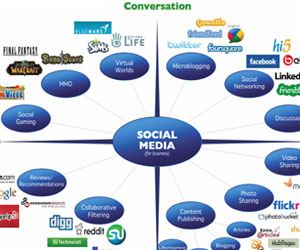



In today's digital age, the concept of business has transcended traditional brick-and-mortar establishments. The rise of the Internet has paved the way for a new realm of commerce - the online business. Creating an online business offers entrepreneurs unprecedented opportunities to reach a global audience, disrupt industries, and redefine the way goods and services are exchanged. This journey, however, is not without its challenges. Navigating the virtual landscape requires a unique set of skills, strategies, and insights. This guide is designed to be your compass, leading you through the intricate terrain of creating and growing a successful online business.
Idea Generation: The foundation of any successful online business is a compelling idea. Identify a niche or market gap and brainstorm innovative solutions to address it. Your idea should align with your passions and expertise to keep you motivated throughout the journey.
Market Research: Conduct thorough market research to understand your target audience, their needs, and the competition. Analyze market trends, customer preferences, and demand to shape your business plan.
Business Plan: Develop a detailed business plan that outlines your goals, strategies, budget, and revenue projections. This plan will serve as your roadmap and a valuable reference point throughout your online business journey.
Legal And Financial Setup: Register your business, obtain the necessary permits, and set up your financial structure. Ensure that your online business complies with all relevant laws and regulations.
Choose A Business Model: Decide on the online business model that suits your idea. Options include e-commerce, subscription services, affiliate marketing, and more. Select the one that aligns with your goals and resources.
Build A Strong Online Presence: Create a professional and user-friendly website or e-commerce platform. Invest in high-quality design, easy navigation, and mobile responsiveness. This is where your customers will interact with your business.
Content And Branding: Develop a strong brand identity and create high-quality, engaging content. Consistent branding and informative content will help you connect with your audience and build trust.
Product/Service Development: If you are selling products, source or create inventory. If offering services, prepare your service packages. Ensure that your offerings are of high quality and meet the needs of your target market.
Payment And Shipping Setup: Implement secure payment gateways and establish reliable shipping options for e-commerce businesses. Make the buying process as smooth as possible for customers.
Marketing Strategy: Craft a comprehensive online marketing strategy, including SEO, social media, email marketing, and paid advertising. Building a strong online presence and attracting your target audience is vital for success.
Customer Service: Offer excellent customer service, including prompt responses to inquiries and addressing customer concerns. Happy customers are more likely to become repeat buyers and brand advocates.
Analytics And Optimization: Regularly analyze your website's performance, sales data, and customer behavior. Use this data to make improvements and optimize your online business for better results.
Scale And Diversify: As your online business grows, consider expanding your product or service offerings and exploring new markets. Scaling and diversification can lead to increased revenue and long-term success.
Adapt And Innovate: The online business landscape is ever-evolving. Stay informed about industry trends and be open to innovation. Adapt your strategies to remain competitive and relevant.
Starting a successful online business is a journey that requires dedication, continuous learning, and adaptability. By following these steps and remaining committed to your vision, you can navigate the intricate terrain of the digital age and build a thriving online business. Remember that success may not happen overnight, but with persistence and the right strategies, you can achieve your goals and redefine the way goods and services are exchanged in the digital era.
 Performance-Based Model: One of the fundamental strengths of affiliate marketing is its performance-based nature. Businesses only pay commissions to marketers when they generate a sale, lead, or desired action. This cost-effectiveness is especially appealing during recessions when businesses are cautious about their spending.
Performance-Based Model: One of the fundamental strengths of affiliate marketing is its performance-based nature. Businesses only pay commissions to marketers when they generate a sale, lead, or desired action. This cost-effectiveness is especially appealing during recessions when businesses are cautious about their spending.
Low Overheads: Affiliate marketing requires minimal overhead costs. Marketers typically operate from their own digital platforms, whether it's a blog, website, or social media account. They don't need to invest in physical infrastructure or hire employees, making it an ideal choice for those looking to keep their expenses low in an economic downturn.
Diversification Of Income: Affiliate marketers have the flexibility to promote products and services in various niches and industries. This diversification of income sources is a crucial element of building a recession-resistant income. If one niche experiences a downturn, revenue from other niches can help offset losses.
Remote Work Compatibility: Affiliate marketing is perfectly suited to remote work. Marketers can operate from anywhere with an internet connection, providing a level of independence that can be valuable during economic instability. Whether you're working from home, a co-working space, or a remote destination, you can continue your affiliate marketing efforts.
Scalability: Affiliate marketing can be as small or as large as you want it to be. You can start with a part-time endeavor and gradually scale it into a full-time income source. This scalability enables individuals to respond to changes in their financial circumstances or market conditions.


 Identify Your Niche And Target Audience: The first step to success in the online business world is to identify your niche and your target audience. Understanding the specific market you want to serve and their needs is crucial. The more precise your niche, the better you can tailor your products or services.
Identify Your Niche And Target Audience: The first step to success in the online business world is to identify your niche and your target audience. Understanding the specific market you want to serve and their needs is crucial. The more precise your niche, the better you can tailor your products or services.
Market Research: Thorough market research is essential. Dive deep into your chosen niche, study your competitors, and grasp market trends. This knowledge will guide your business strategy and help you identify gaps and opportunities.
Solid Business Plan: Develop a comprehensive business plan that outlines your mission, vision, goals, strategies, budgets, and revenue projections. A well-structured business plan will be your guiding document throughout your journey.
Build A Strong Online Presence: Your website is the digital face of your business. Invest in a professional, user-friendly website or e-commerce platform. Ensure it's responsive and optimized for search engines. This will be the hub of your online operations.
Content Strategy: Content is king in the digital realm. Create and regularly publish high-quality, informative content that resonates with your target audience. Valuable content helps establish your brand's authority and attracts organic traffic.
Staying Ahead In A Dynamic Landscape
 2. User-Generated Content
2. User-Generated Content
User-generated content (UGC) is another powerful marketing innovation. Encouraging your customers to create content about your products or services not only builds trust but also generates authentic, relatable content that resonates with potential buyers. Social media platforms, review sites, and dedicated UGC campaigns can help harness the potential of your satisfied customers as brand advocates.
3. Interactive Marketing
Interactive marketing campaigns have the ability to captivate and engage consumers like never before. Interactive content, such as quizzes, polls, and gamified experiences, invites users to actively participate. This not only holds their attention but also provides valuable insights into their preferences and behavior, which can inform your marketing strategies.
4. Video Storytelling
Video content remains a dominant force in marketing, and innovative businesses are taking it to the next level with storytelling. Instead of merely showcasing products, they're crafting narratives that resonate emotionally with the audience. This can be in the form of mini-documentaries, animated stories, or live-streamed events that showcase the brand's journey and values.
5. Artificial Intelligence (AI)
AI is revolutionizing marketing in numerous ways. Chatbots provide instant customer support, while AI-powered algorithms analyze data to predict consumer behavior and preferences. This allows businesses to deliver highly targeted and relevant content to their audience, enhancing the customer experience.
6. Augmented Reality (AR) And Virtual Reality (VR)
AR and VR technologies are transforming the retail industry. Brands are now offering virtual try-ons, allowing customers to see how products will look before making a purchase. This innovative approach enhances the shopping experience, particularly in the fashion and cosmetics sectors.
 Search Engine Optimization (SEO): SEO is the cornerstone of any successful online marketing strategy. It involves optimizing your website and content to rank higher in search engine results. By using relevant keywords, high-quality content, and optimizing technical aspects of your site, you can improve your website's visibility and attract organic traffic. SEO is a long-term strategy that, when executed effectively, can establish your brand as an authority in your industry.
Search Engine Optimization (SEO): SEO is the cornerstone of any successful online marketing strategy. It involves optimizing your website and content to rank higher in search engine results. By using relevant keywords, high-quality content, and optimizing technical aspects of your site, you can improve your website's visibility and attract organic traffic. SEO is a long-term strategy that, when executed effectively, can establish your brand as an authority in your industry.
Content Marketing: Content is king in the world of internet marketing. Creating valuable, informative, and engaging content is essential for attracting and retaining an online audience. Blog posts, articles, videos, infographics, and more can showcase your expertise and provide real value to your target audience.
Social Media Marketing: Social media platforms offer an excellent opportunity to connect with your audience on a more personal level. Establish a presence on platforms like Facebook, Twitter, Instagram, and LinkedIn, and use them to share your content, engage with your followers, and build a loyal community. Social media marketing can help you humanize your brand and create meaningful relationships with your customers.
Email Marketing: Don't underestimate the power of email marketing. It's a direct way to reach your audience with personalized messages and offers.
Navigating The Evolving Landscape
 Significance Of Mobile Marketing Exploration
Significance Of Mobile Marketing Exploration
The exploration of mobile marketing is crucial for several reasons:
Rapid Technological Advancements: Mobile technology evolves at a remarkable pace, introducing new opportunities and challenges. Exploring these changes allows businesses to leverage the latest trends, such as augmented reality, mobile wallets, and 5G connectivity.
Consumer Behavior Shift: As more consumers rely on mobile devices for their online activities, understanding their behavior and preferences is essential. Exploration helps tailor marketing strategies to meet changing consumer expectations.
Competition And Innovation: In a highly competitive marketplace, staying ahead often requires innovative approaches. Mobile marketing exploration can uncover new techniques, tools, and strategies that provide a competitive edge.
Personalization: The modern consumer seeks personalized experiences. Exploring mobile marketing techniques like location-based marketing and AI-driven recommendations can provide tailored experiences that resonate with users.





